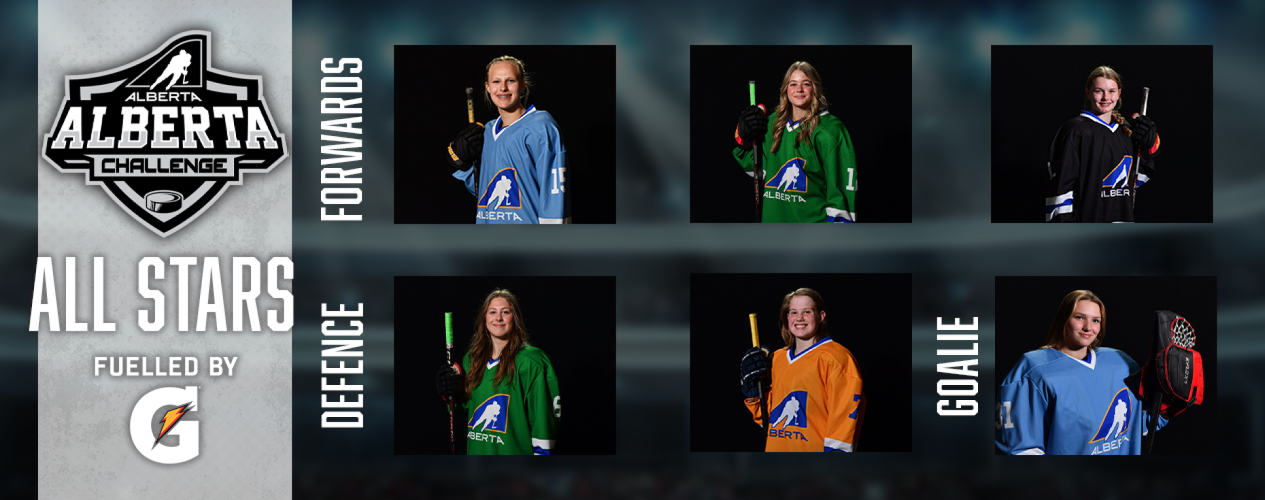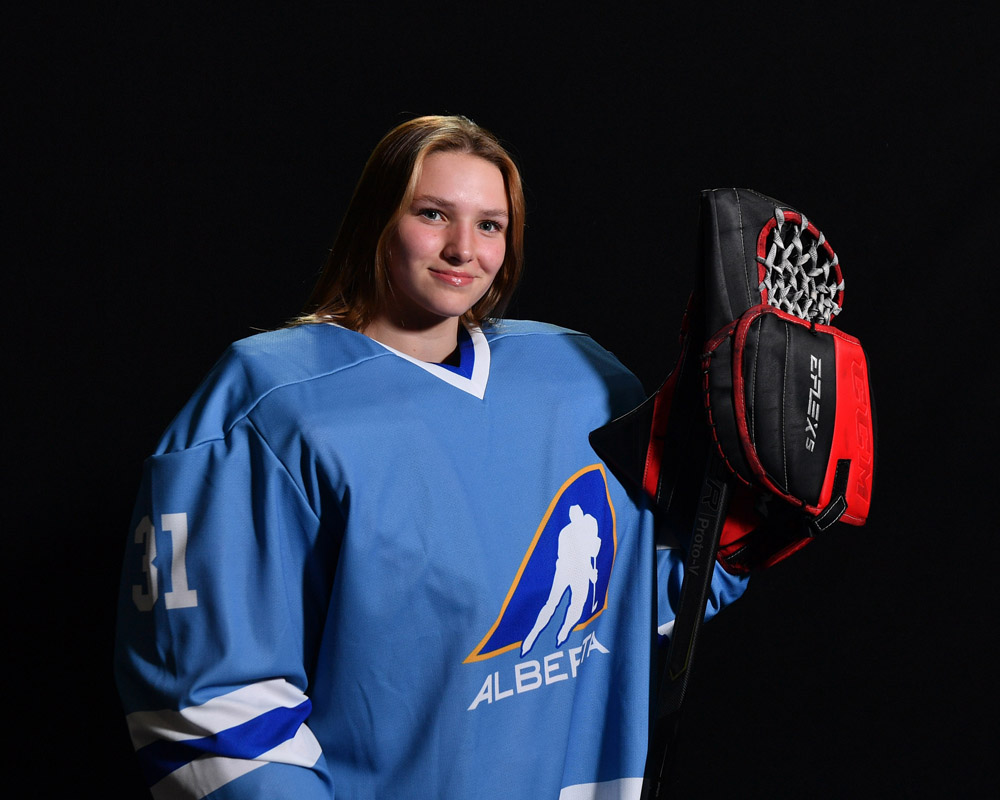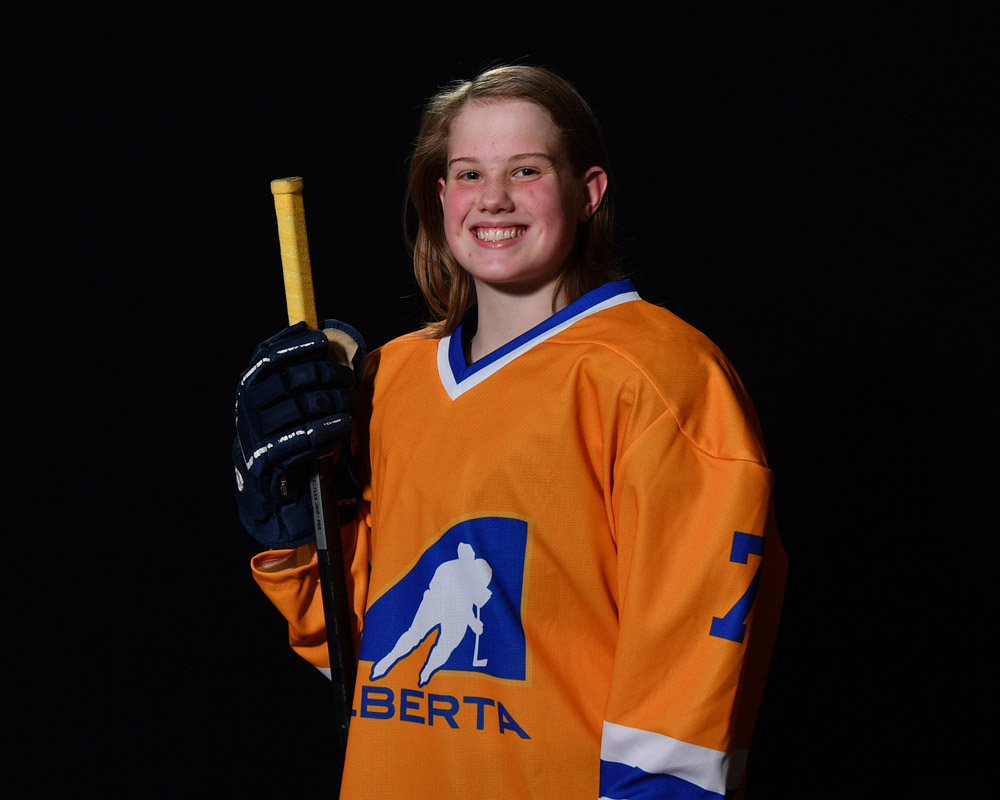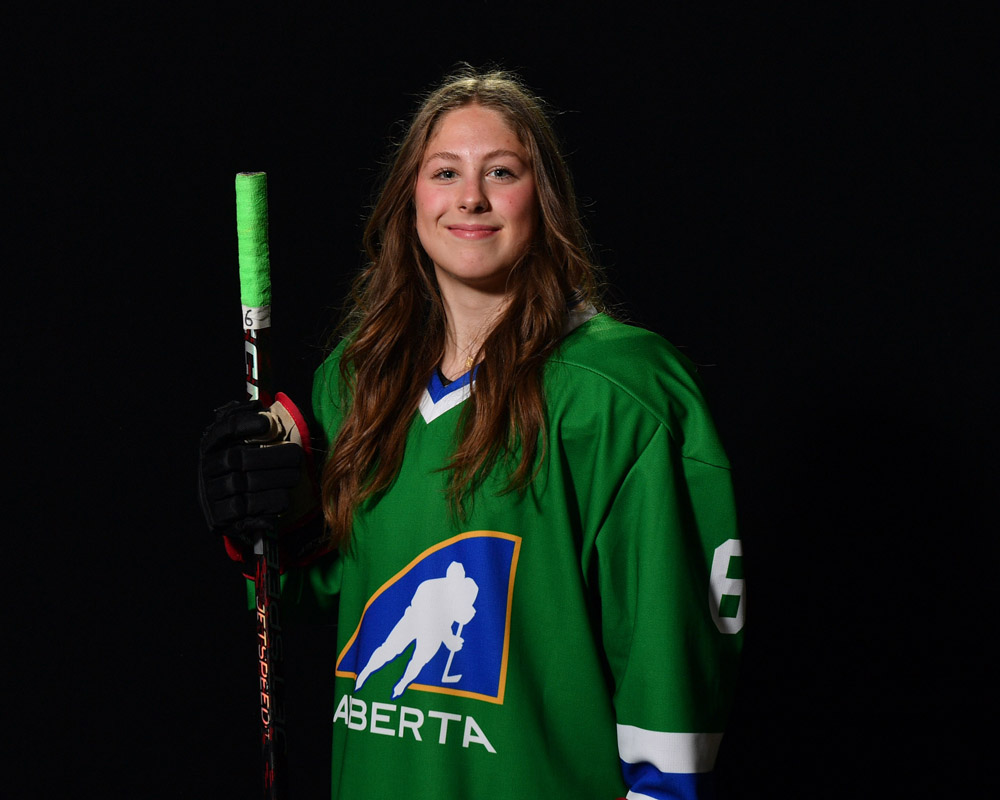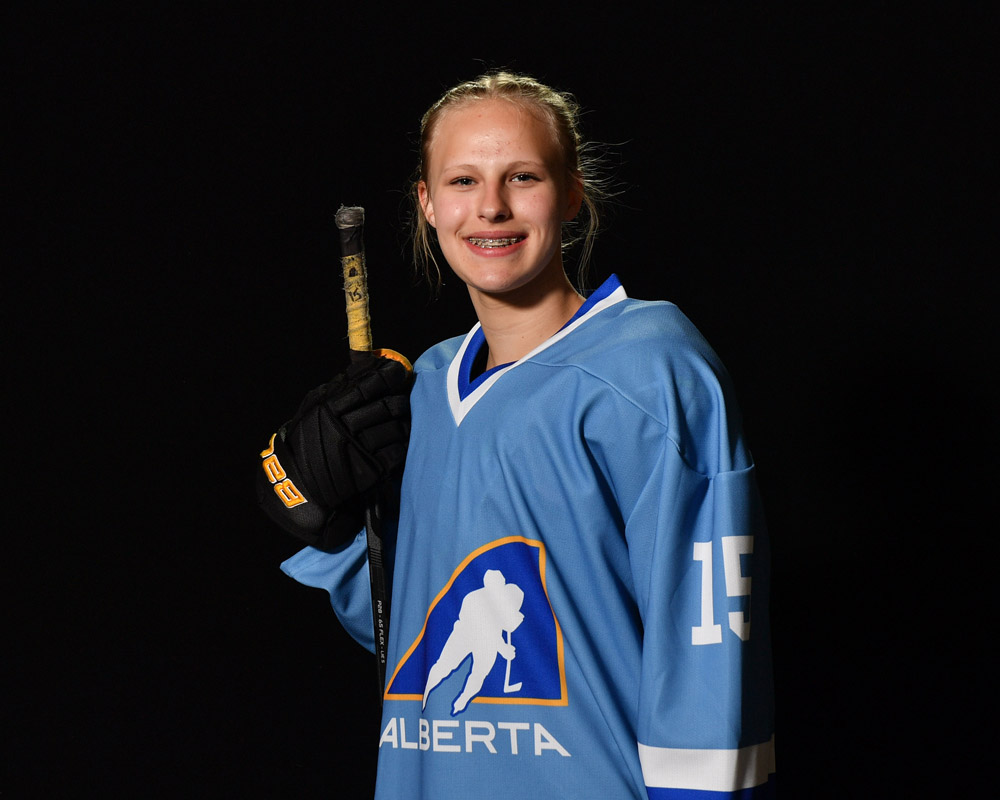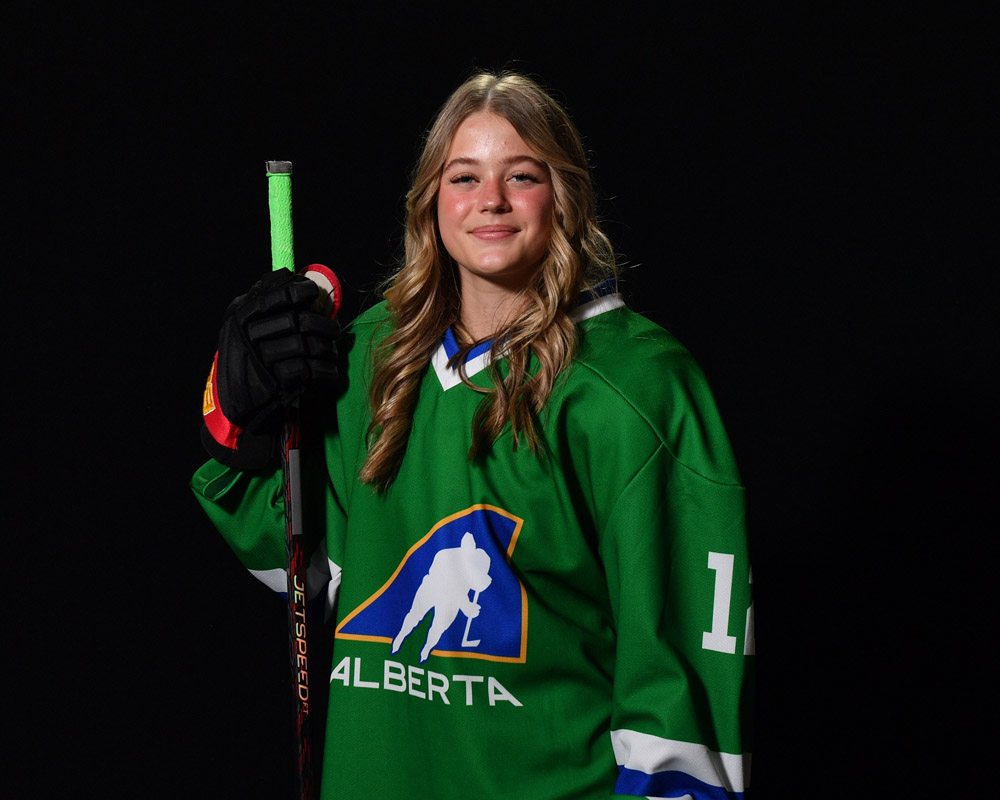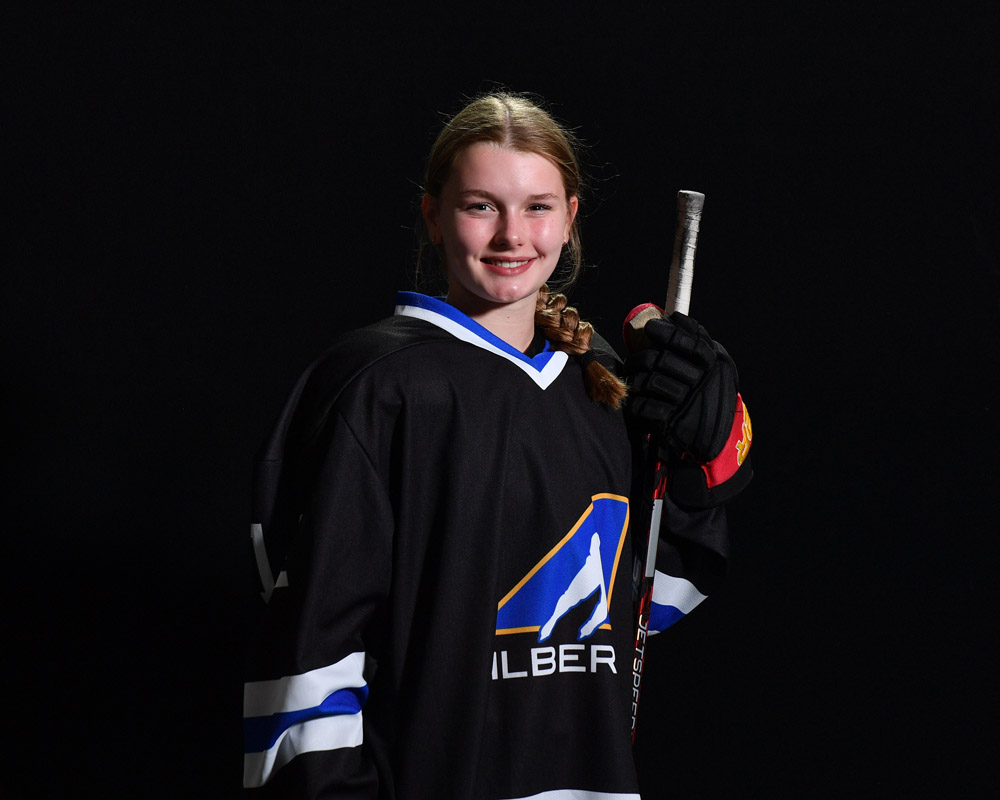Darren Reid quite literally dreamt his future.
The assistant coach of Team Alberta Male, who competed at the 2023 National Aboriginal Hockey Championships (NAHC), had a dream about playing hockey for a team with a lightning bolt at six-years-old.
When he was eight, he bought a pack of hockey cards, where he discovered the Tampa Bay Lightning. Ten years later, the Lightning drafted him 256th overall in the 2002 NHL Entry Draft.
Along the way, there were little signs that gave Reid motivation to keep honing his skills. Like the reoccurring dream he would have in his teenage years of driving in a city, with a little league baseball park, opening up to the city as he turned the corner. In his first year as a professional hockey player in Springfield, Massachusetts, Reid found himself in the exact scenario he had dreamed about for years.
“I went for a drive on one of my first days in Springfield. I saw the little league field on the right and I thought if there’s a city around this corner, then this is meant to be,” said Reid. “I turned the corner and I was in shock. I pulled over and I took it all in. I had this feeling this is where I’m supposed to be in life.”
Reid’s involvement in hockey stems back to his biggest inspiration, his grandfather.
“My grandfather led all the sports in our family. My Dad and my uncles grew up with it and my Dad wanted that for my brother and me,” said Reid. “I was three years old the first time I skated, and I fell in love with hockey.”
As a kid, Reid loved the game. He never missed an Edmonton Oilers or Detroit Red Wings game. His passion came from the generations before him and when his family saw his potential to go to the next level, they pushed him harder.
“I’m very grateful for my Dad’s belief in me. He saw that I had what it takes to go to the next level,” said Reid. “I recognized that I had that hard work, that passion, that wanting to get better skill, that would take me there.”
By the time he was 14, Reid was one of the better players on his team and in his leagues in the Lac La Biche area. But he wondered why some of the really good hockey players he grew up playing with never moved on.
“You wonder why sometimes, why some people get chosen and some people don’t,” said Reid. “Now that I’m a coach and I was a scout, you understand and can see the difference between hard working players and kids who are just good players. Hard work is something that you can’t teach, it’s instilled.”
Reid’s work ethic couldn’t be ignored. But growing up in the 1990s as an Indigenous male, neither could the racism he experienced.
“I hate to say it, but there was a lot of racism which prevented me from playing on different teams,” said Reid. “There were teams that I didn’t make that helped me get better in my own way. I honestly think I needed that because it pushed me 10 times harder to play.”
As Reid moved through the ranks in his career, he would compete against the same players he was cut for in Midget AAA, while he played Midget B at home.
“It was really hard mentally to figure out why I couldn’t make some of these teams. That’s something I can’t change, but I’m grateful that in hockey today, a lot of the Indigenous kids are getting the opportunities to showcase their talent,” said Reid.
In Lac La Biche, a local former professional player, Terry Ewasiuk, took notice. He convinced Milan Dragicevic, then head coach and general manager of the Drayton Valley Thunder in the Alberta Junior Hockey League, to watch Reid.
“Milan truly believed in me. Even though I only played for him for two games, he was the one who brought me to Drayton Valley and selected me to play,” said Reid. “Then Barry Medori took over. Barry gave me the opportunity.”
Medori was the coach that Reid needed - giving him an opportunity, and not giving up on him.
“That’s what I teach kids today, I don’t give up on them. I don’t send them away, I want to teach them, until they show me they can’t,” said Reid.
Under Medori, Reid began to blossom. He was named rookie of the year and received full-ride scholarship offers to NCAA schools. Then the Western Hockey League (WHL) called. After discussing it with his family, Reid chose to enter the WHL with the Medicine Hat Tigers.
With the Tigers, Reid honed his game. He had a breakout season in 2004 when the Tigers won the WHL championship. After that, he knew he was ready for the next step in his hockey career.
But timing is everything and after realizing his dream of being drafted to the NHL, the timing in Reid’s career began to go awry.
What should have been his first NHL training camp with the Tampa Bay Lightning was put on hold for a year due to the 2004-05 NHL lockout. He began his career in the American Hockey League with the Springfield Falcons under coach Dirk Graham. Reid received the True Grit award, an award presented to the player who exemplifies the traits of courage, determination, and a strong work ethic.
After five years in the Lightning system, he was traded to the Philadelphia Flyers. The trade felt like a new chance at the NHL dream, especially since cracking the Lightning lineup was tough after they won the Stanley Cup in 2004. He played 14 games with the Flyers. But his time in the AHL with the Philadelphia Phantoms, playing for coach Craig Berube, was priceless.
“We were Indigenous and he took me under his wing. He showed me what hard work meant,” said Reid. “I learned at junior, the personal aspect. Dirk gave me the opportunity to play my game. Then you get a coach who was a Stanley Cup Champion level, and he showed you what to do to players to get them to respond through hard work.”
When Reid retired from playing in 2010, his resume included a Calder Cup Championship with the Hershey Bears of the AHL, a WHL championship and multiple accolades acknowledging him for his hard work and dedication to the game.
At the time, Reid didn’t realize the platform that he’d been given as an Indigenous player, especially in north central Alberta.
“I didn’t ask for a spotlight and I didn’t know what to do with it, I’m not that kind of person,” said Reid. “It took me awhile to learn that I actually have something to offer the Indigenous community, because I’ve been there and I’ve went through the steps. Now I want to help the next generation so they don’t have to make the same mistakes I did.”
Blessed with good coaching throughout his career, he began to understand how he could give back, it started with operating hockey schools across North American for Indigenous youth.
“I always wanted to coach, but for the first five years after playing, I felt I wasn’t ready to be the coach I wanted to be. I felt I needed to mature as a coach and as a person,” said Reid. “As time went on, I did…. I’m happy I can do stuff like that to give back to these kids. It’s something I have a passion for.”
In addition to Medori, Graham and Berube, he also credits his Tigers coach, Willie Desjardins for making him coach he is today.
“I’m still learning and I always will still learn, but I’m grateful for Barry, Willie, Dirk and Craig for teaching me how to be a great coach,” said Reid. “Willie made me who I am today as a coach. He instilled a lot of great coaching values in me. He knows how to dig into your soul and get the best out of you. He could have sent us home a lot of times, instead he put us on the right path.”
The combination of the four coaches who impacted his career and his own professional experience, has enabled Reid to grow into his position as an Assistant Coach at NAHC.
“Words can’t even explain how honoured I am to have been asked to help coach Team Alberta,” said Reid. “I wanted to be involved because I have this experience that a lot of our Indigenous youth don’t know.”
Reid is using this opportunity to share his wisdom with players of the next generation.
“If I had had this when I got to pro, it would have made me career a whole lot easier,” said Reid. “Helping these kids get to the next level and give them the best version of themselves to make it there, I’m just very honoured to help.”
As for envisioning his future, this is one dream he didn’t see coming.
“I never thought I’d be sitting here as a coach and be coaching Team Alberta,” said Reid. “We represent our province and that’s a big deal.”
.jpg) Lin Luymes, a long-time volunteer with Hockey Alberta, passed away on May 8 after some recent health issues. She was 55.
Lin Luymes, a long-time volunteer with Hockey Alberta, passed away on May 8 after some recent health issues. She was 55.























